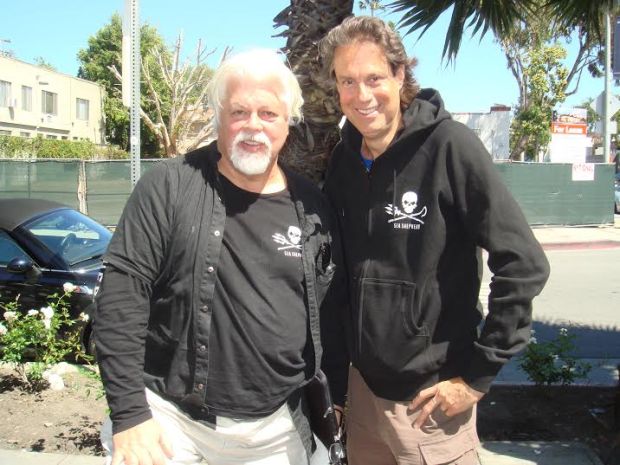As rescuers continue to frantically search for disappeared Malaysian Airline Flight MH370 a thousand miles or so west of Perth, Australia, one thing has become very apparent: the Indian Ocean is full of millions of tons of plastic. Did you know that 3.5 million pieces of plastic enter the oceans 24/7, 365 or the equivalent of 20 million tons a year?
Most plastics entering our oceans break down into ‘microplastic’ or diminutive pieces that resemble confetti, and sealife mistake those microplastics for food. So now, millions of seabirds, tens of thousands of sea turtles and billions of fish are filled with pieces of plastic. By the way, microplastics act as powerful sponges for oceanic toxins such as: DDT, methyl-mercury, BPA, phalates, PCBs and flame-retardants. What we do to the oceans we do to ourselves. Clearly, the safety of seafood is in dire jeopardy.
The World Society for Protection of Animals reported that the bigger pieces of plastic ensnare and entangle between 57,000 and 135,000 whales each year. Single-use, disposable plastic bags look like jellyfish and sea turtles that unsuspectingly eat them die from septicemia or blood poisoning because it blocks their digestive system. For those of us who work on the sea, these nightmares are becoming all too familiar.
Last Sunday, I had the pleasure of having lunch with Captain Paul Watson, the founder of Sea Shepherd Conservation Society and some of his team.
I asked Watson, “What can be done about our suffocating oceans?” He told me, “Creativity is the key to saving creation from our darker side and the key to a future of ecological harmony between humanity and the diversity of wondrous species we share this planet with.”
We both agreed that humans are smashing problem solvers and exquisite toolmakers. I was thrilled to hear that Sea Shepherd was involved in an exciting collaboration called The Vortex Project, which is removing plastics from the oceans and beaches.
Watson explained, “The Vortex Project is a collaboration between eco-material innovator Bionic Yarn, Sea Shepherd Conservation Society and
Parley — for the Oceans. Using Bionic Yarn’s unique fibers made from ocean plastic, denim brand G-Star will produce G-Star’s ‘RAW for the Oceans’, a line of denim with a purpose. The first collection will go on sale August 15 in G-Star RAW stores.
Sea Shepherd is using scientific innovation and awareness-building to mobilize teams around the globe to help clean up oceans and beaches.
Recycling, enhancing and reusing plastics for yarn and other elements in consumer products is smart and it is an excellent business model. There is no waste in nature. In order for 7.2 billion people to live on our planet, we require a ‘closed loop’ economy, whereby companies and consumers are rewarded for reducing waste and safeguarding our environment. The Vortex
Project is all about harmonizing the human economy with marine ecosystem health.
Let me remind you, irrespective of where you live on Earth, three out of every four breaths of air come from our oceans. Please reduce your dependence upon plastics. Buy a half dozen organic cotton bags, shop with them and refuse to use single-use, disposable plastic bags.
Not only did we share lots of laughter at lunch, but also I came away knowing that Captain Paul Watson is providing global leadership, helping to heal the seas at a pivotal time in the history of the human race.
Earth Dr Reese Halter is a broadcaster, biologist, educator and author of upcoming book Shepherding the Sea: The Race to Save Our Oceans

